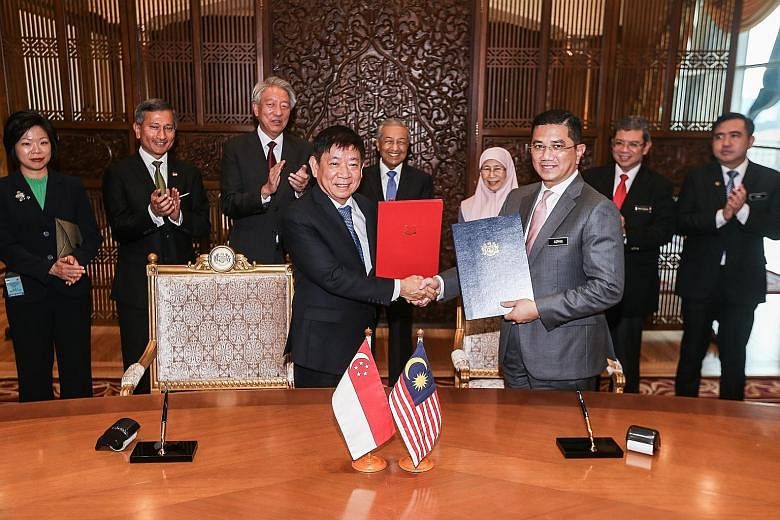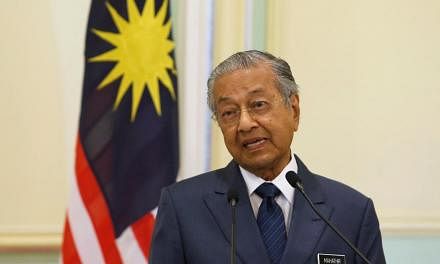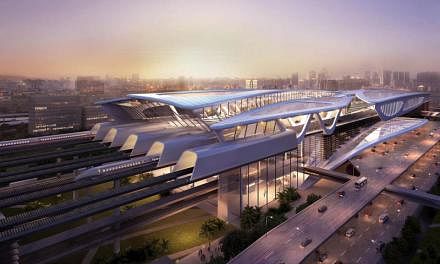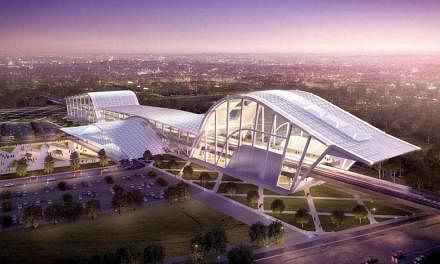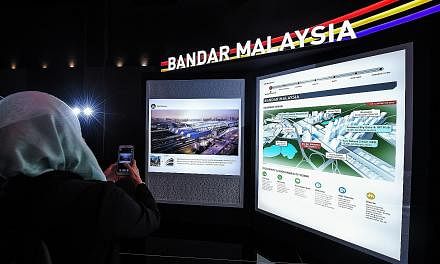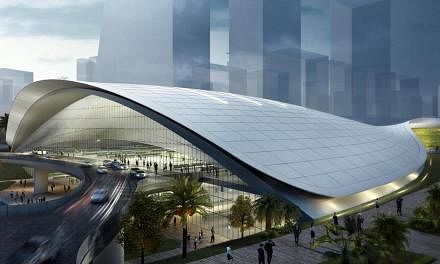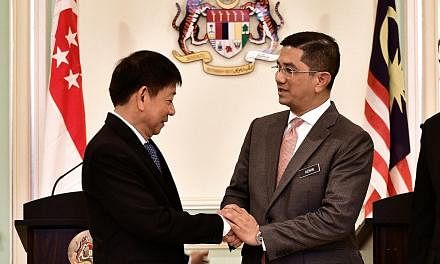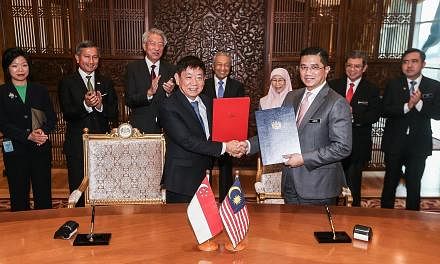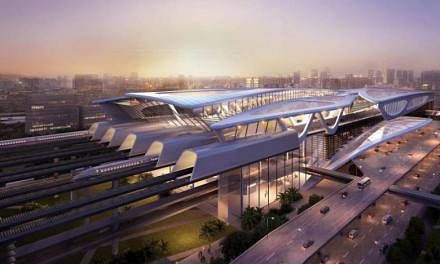Singapore and Malaysia yesterday signed an agreement to defer the Kuala Lumpur-Singapore High-Speed Rail (HSR) project for about two years.
This stoppage - for up to May 31, 2020 - will mean that the HSR express service will now take four years longer than originally envisaged to start rolling.
Instead of the trains starting to ply on Dec 31, 2026, they will now do so only on Jan 1, 2031, if all goes to plan.
"By the end of May 2020, we hope to see the resumption of the high-speed rail construction," Coordinating Minister for Infrastructure and Minister for Transport Khaw Boon Wan said yesterday.
"If not, the project will be deemed to have been terminated, and Malaysia will reimburse Singapore for the wasted costs we have incurred fulfilling our HSR obligations till now."
Meanwhile, the ongoing joint tender for an assets company to operate the 350km line has been called off .
Under the deal, Malaysia has agreed to reimburse Singapore $15 million for abortive costs incurred by the deferment of the mega project, which has had a question mark over its future since Malaysia elected a new government in May.
This payment is due by the end of January next year.
"Many Singaporeans have actually been looking forward to the realisation of this project, and we remain committed to this project. But of course we understand why Malaysia needs to temporarily suspend the construction of the HSR project," said Mr Khaw, adding that the negotiated outcome was fair.
Asked why a two-year delay means trains start running four years later, the Ministry of Transport said both countries need additional time to implement the project after it resumes, including calling fresh tenders and carrying out extra technical works.
Malaysian Prime Minister Mahathir Mohamad initially planned to scrap the HSR when he took over as he reviewed mega projects to reduce the country's RM1 trillion (S$332 billion) debt.
However, he later said his administration would negotiate a delay as a cancellation would entail a large compensation under the pact.
Since then, officials from both sides have been in "intense negotiations", said Malaysian Economic Affairs Minister Mohamed Azmin Ali, who inked yesterday's deal with Mr Khaw.
Datuk Seri Azmin said Malaysia had initially asked for a much longer postponement, while Singapore had offered a shorter one, before both sides eventually agreed to push it back by two years.
Mr Khaw said in a Facebook post: "Many will be disappointed by the delay, but at least there is now greater clarity on the way forward for this mega project."
The line between Kuala Lumpur and Jurong East is estimated to cut travel time to 90 minutes, compared with more than four hours by car.
Singapore has already spent $250 million on the project - some of which can be recovered - but Malaysia will have to bear the agreed costs incurred by Singapore should the project be terminated.
But there will be no further deferments, Foreign Minister Vivian Balakrishnan told reporters later.
On the abortive costs of suspending the project, Mr Khaw cited how work is already under way to divert utilities for the HSR, which will run mostly underground in Singapore.
These projects cannot simply be dropped, he noted.
In a separate interview, Deputy Prime Minister Teo Chee Hean said the agreement was a positive, balanced outcome that addressed Malaysia's financial concerns by giving it the opportunity to think about what it wanted to do with the HSR, while safeguarding Singapore's financial interests.
"It reflects the commitment of both Malaysia and Singapore to want to proceed with bilateral relations in a positive way," he said.
SEE TOP OF THE NEWS
